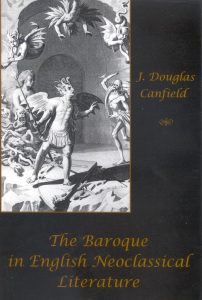
Baroque pearls persist inside the shells of order and decorum in English neoclassical literature. From Milton and the Court Wits to Dryden and the Scriblerians, including several women wits, authors deploy baroque moments of disruption, grotesquerie, excrescence, extravagance, exuberance, encryption—even as they turn to more supposedly classical, restrained, and rational forms. Canfield tries to ferret out the meanings of these disruptions, to read out the implications of their ambiguities; of their metaphorics, rhetorics, and misplacements; of their ludic play.
About the Author
J. Douglas Canfield is Regents Professor of English and Comparative Cultural and Literary Studies at the University of Arizona.
